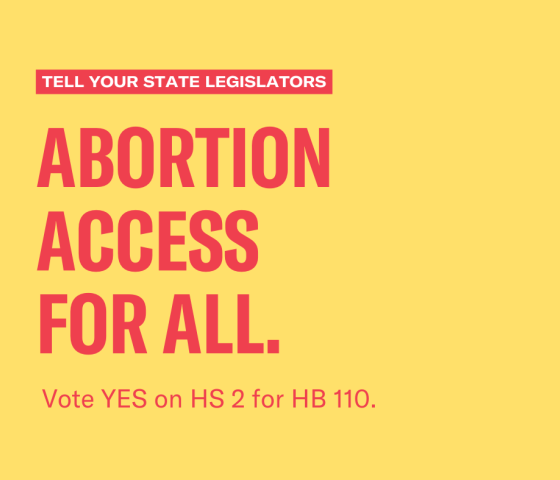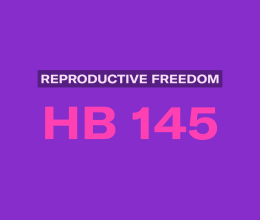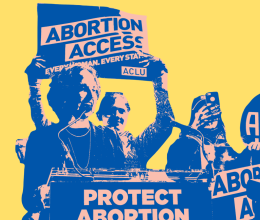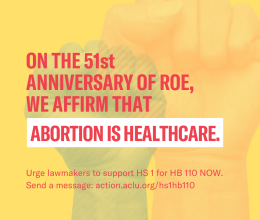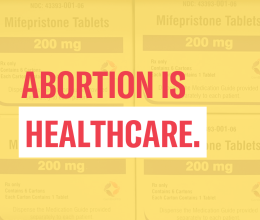January 22 marks what would have been the 51st anniversary of Roe v. Wade, the landmark Supreme Court decision that granted the right to an abortion. Like last year's, however, the conversation takes a different turn on this anniversary. Rather than celebration or commemoration, this day reaffirms our commitment to reproductive freedom amidst an ongoing attack on abortion rights. Since the Supreme Court’s 2022 decision to overturn Roe, 14 states have enacted near-total abortion bans, and two states have banned abortion past six weeks of pregnancy. At a time when millions of people across the country are being stripped of their right to make decisions about their bodies, Delaware’s leaders must do more to ensure meaningful access to reproductive healthcare.
While Delaware has already been a leader by codifying abortion rights in state law, for many Delawareans and those who seek care from out of state, finances still pose a substantial barrier to accessing an abortion. In Delaware, the average cost of an abortion ranges from $500 to $791—a price tag that forces many people to shift critical funds away from necessities such as food, rent, childcare, and other medical expenses to access care. No person should have to risk eviction, health complications, loss of employment, or other consequences to cover their medical care.
Last year Delaware lawmakers took a step towards making true abortion access a reality in our state by introducing House Substitute 1 for House Bill 110, legislation that ensures that people on Medicaid, private, and state insurance plans can access abortion care without financial burden. Unfortunately, the bill did not advance. This year, there’s no time to waste. Seventeen states, including our neighbors Maryland and New Jersey, already allow Medicaid funding for abortion.
Policies that create financial hurdles to accessing an abortion, while they are often framed as separate from direct restrictions on the procedure itself, serve as de facto barriers to care. Denying coverage for abortion services disproportionately impacts historically marginalized communities, exacerbating existing socio-economic disparities. The practical consequence is that a legal right becomes a hollow privilege for those who can afford it, effectively creating a two-tier system of access to reproductive healthcare.
The simple truth is that insurance barriers are stealthy abortion bans. They not only compromise individual autonomy but also perpetuate a cycle of inequality that undermines the values we hold as a state. Real access to abortion care means that people from all walks of life — young people, low-income people, those who live far from medical providers, and disabled people — can access care.
As a Delawarean, I am proud to live in a state in which lawmakers have already taken important steps to protect bodily autonomy. But it can’t stop here. Eliminating financial hurdles to accessing abortion care is a necessary step towards breaking down socioeconomic barriers, addressing racial disparities in reproductive health, and ensuring our state is a true safe haven for Delawareans as well as our neighbors. By passing HS 1 for HB 110 this year, Delaware lawmakers are ensuring that every person — regardless of their insurance provider or ability to obtain insurance — has the ability to make their own choices about their bodies and futures.
As the 2024 legislative session begins, join us in calling on Delaware lawmakers to support and fund HS 1 for HB 110.
SEND A MESSAGE TO DELAWARE LAWMAKERS.
